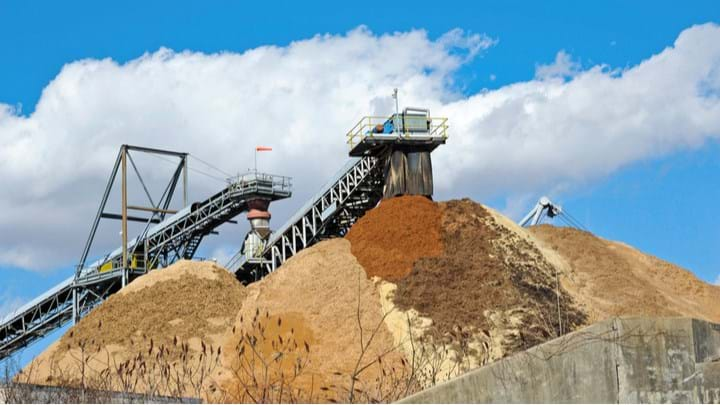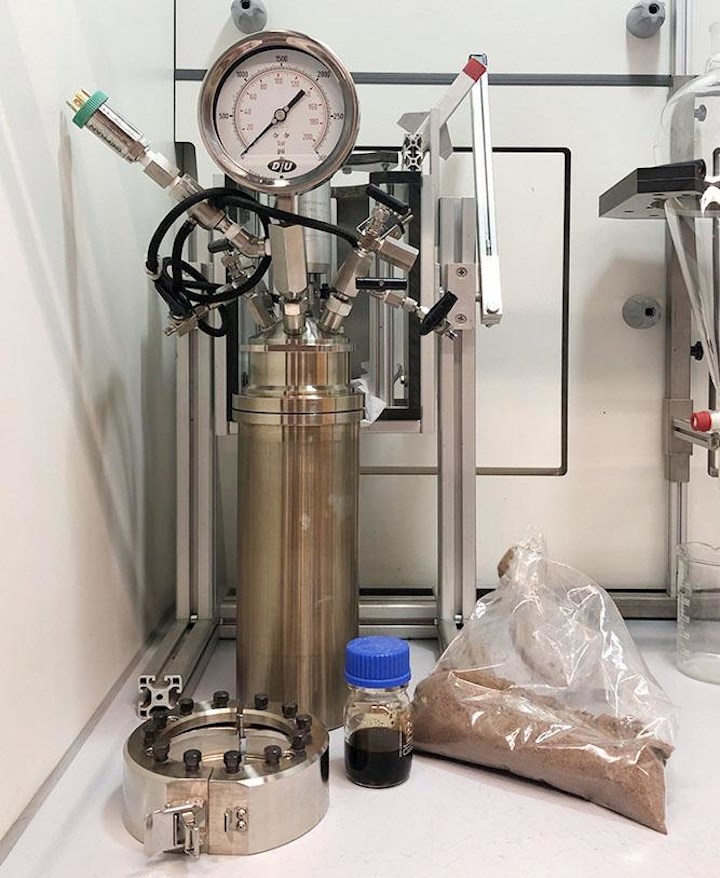Replacing petroleum with wood in chemicals production

AN interdisciplinary team of researchers has calculated how wood could replace petroleum in the chemical industry, based on their process that converts wood waste into chemicals.
The team of bio-engineers and economists from KU Leuven, Belgium, looked at the technological requirements and the economic feasibility of a biorefinery that uses wood as a feedstock. The future of biorefineries will depend not just on feedstock availability, but also on how profitable they are and if they can compete with the petrochemical industry.
"In the paper industry, lignin is seen as a residual product and usually burned. That's a pity, since just like petroleum, it can have many high quality uses if it can be properly separated from wood and the right chemical building blocks are extracted," said Bert Sels, a professor at the Department of Microbial and Molecular Systems at KU Leuven, Belgium.
The KU Leuven researchers developed a process in 2015 to use waste from the paper industry to make chemicals. The reactor simultaneously converts wood into paper pulp and lignin-derived products. Paper pulp from the wood can be used to produce biofuels or insulation foam, while lignin oil produced from the wood can be processed into products such as phenol, propylene, and components to create ink.

Based on that process, they have now calculated how it could be used in a biorefinery. The Science paper describing the work discusses a new type of biorefinery that can convert 78% of birch wood into xylochemicals. The biorefinery can also produce bioethanol and lignin oil, as well as phenol and propylene, which can be used for bioplastics. They can also use residual products for printing ink.
"What's so special about this study is that we calculated the economic viability of a switch from petroleum to wood," said Sels. They worked with a Belgian-Japanese ink company and found that a plant that uses wood components to make ink would be profitable after a few years.
Sels said that there is a surplus of wood in Europe due to a shrinking paper industry, which can lead to sustainable feedstocks through proper forest management. Biorefineries would also emit less CO2 emissions compared to their petrochemical equivalents, and as wood can store CO2, the products made from wood would also store CO2.
The team is now working on scaling up their process and hopes to build a wood refinery in Belgium. They are collaborating with waste processors and landscape managers to use their waste wood as a feedstock. They are also talking with business partners who can process the cellulose pulp and lignin oil.
"The chemical sector emits a lot of CO2 globally. A serious change is needed to achieve a carbon neutral chemistry," said Bert Lagrain, Sustainable Chemistry Innovation Manager at KU Leuven. "By scaling up our research project, we hope to get the industry on board."
Science http://doi.org/dpw3
Recent Editions
Catch up on the latest news, views and jobs from The Chemical Engineer. Below are the four latest issues. View a wider selection of the archive from within the Magazine section of this site.




